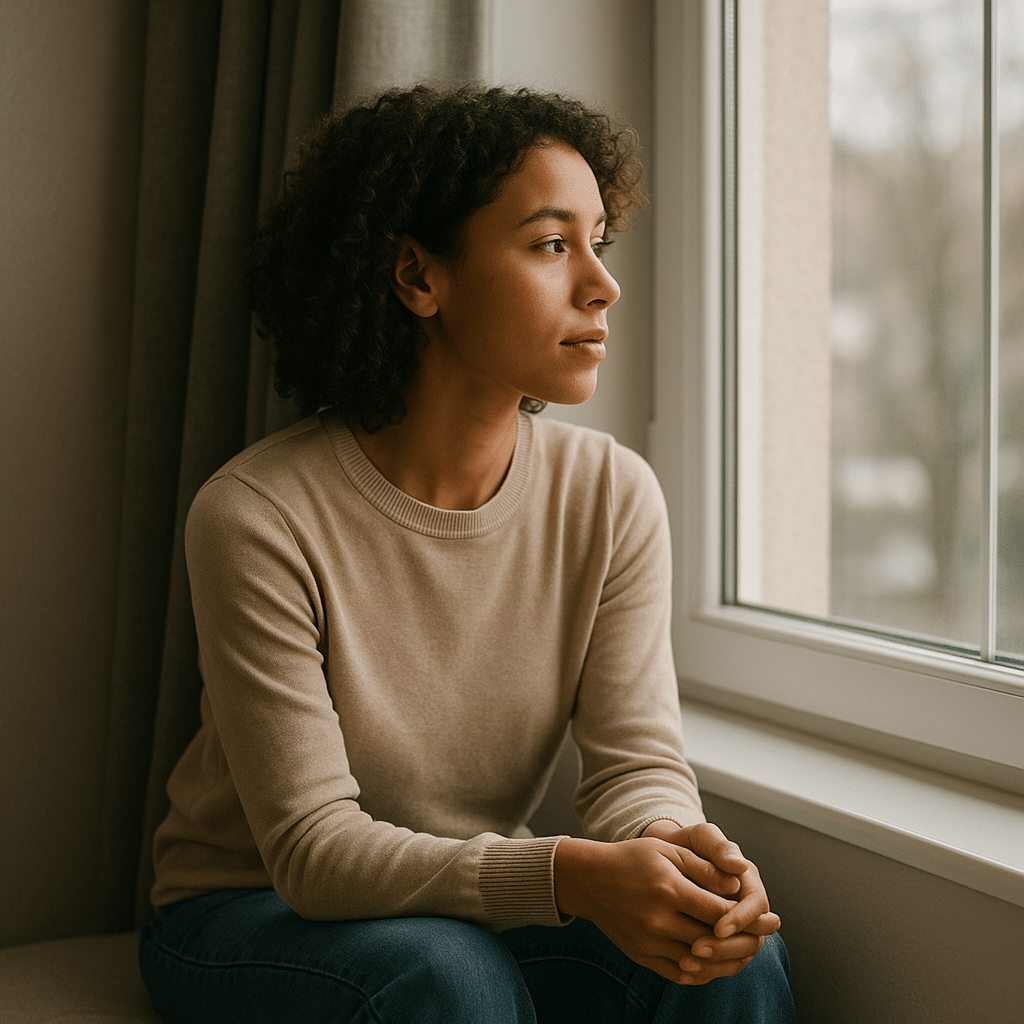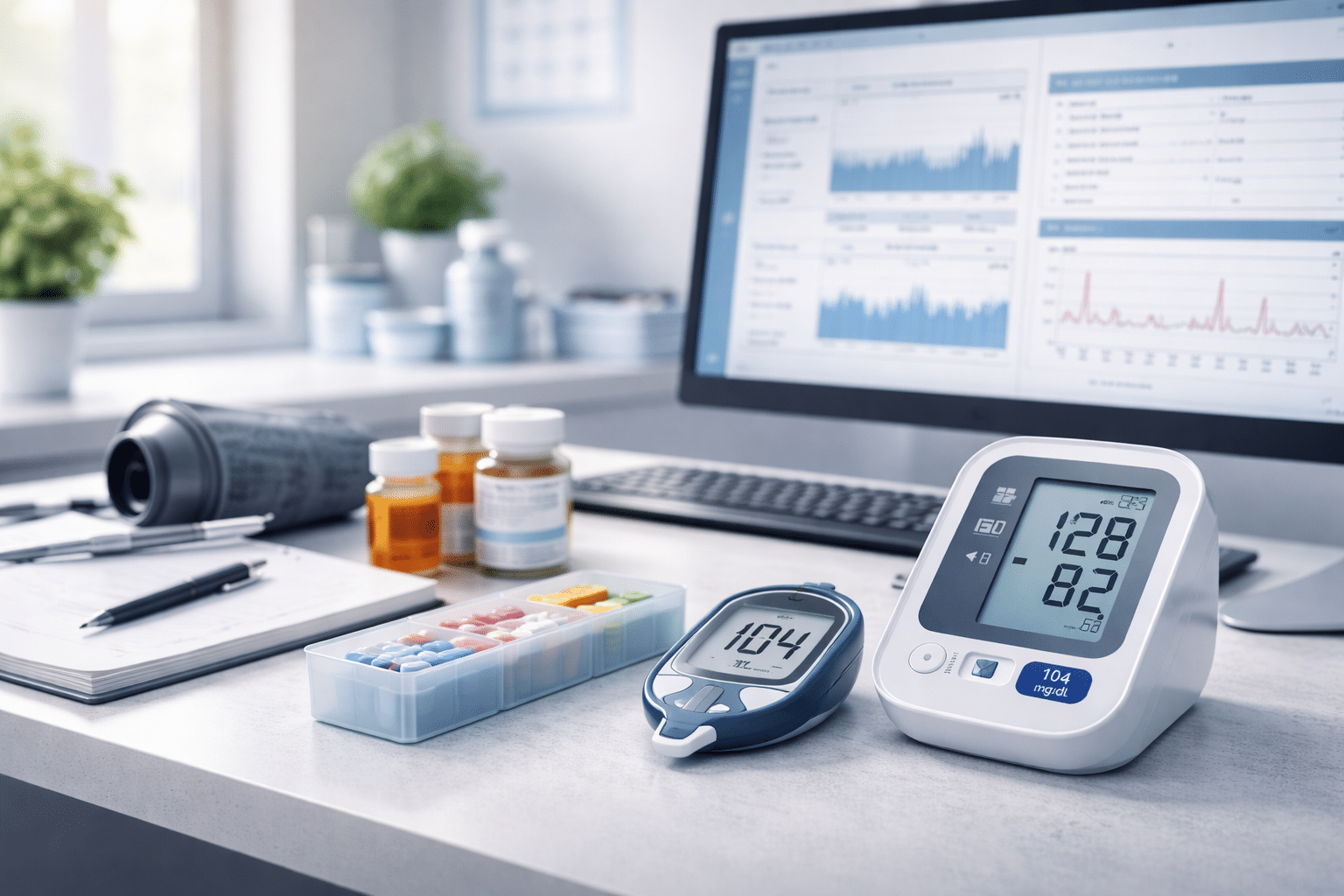There’s no one-size-fits-all solution when it comes to depression or anxiety treatment. What works for one person might not be the right fit for another, and that’s okay. Healing doesn’t follow a straight path.
When it comes to anxiety, therapy can be remarkably effective, especially with modalities like CBT. CBT is used to help you notice your thought patterns, identify the source of your anxiety, and gradually create healthier patterns of responding.
Some people find that adding mindfulness or guided breathing helps ease physical tension, especially during high-stress moments. If symptoms feel more intense or constant, medication may be used to help regulate the nervous system and reduce those spikes of panic or restlessness.
Treating depression often involves a combination of therapy and medication. This is especially true if the individual is experiencing significant symptoms that affect their motivation, sleep, or day-to-day activities. Talk therapy gives individuals room to re-establish connection with their values, identify small goals, or consider what has been feeling heavy.
Antidepressants, in many cases, help lift that mental fog so healing feels possible again. And if you’ve already tried those routes without much progress, advanced treatments like transcranial magnetic stimulation (TMS) or Spravato offer additional support.
While changes like better sleep or exercise help, they aren’t cures on their own. They support recovery, not replace it.
Understanding Stress
Stress is your body’s built-in alarm system. It’s what pushes you to finish a project on time or stay alert in traffic. According to the American Psychological Association, stress is a temporary reaction to outside pressure, something specific that triggers tension, like a tough conversation or financial worry. Once that moment passes, your body gradually returns to normal.
Typical signs of stress include tight shoulders, poor sleep, irritability, and headaches. Even then, you can still laugh with friends, watch a movie, or enjoy a walk. That’s the difference. With ordinary stress, joy is still accessible. You feel stretched but not broken.
When stress becomes constant, when there’s always a new reason to feel tense, the body stops resetting. That’s where anxiety can begin to take root.
What Is Anxiety?
At first, anxiety feels a lot like stress. However, where stress reacts to an event, anxiety keeps reacting long after the event is over. It’s that undercurrent of dread that shows up without warning.
The National Institute of Mental Health explains it as excessive worry happening most days for six months or more. It’s not always logical, and you can’t simply “turn it off.”
Typical anxiety symptoms include:
- Restlessness or feeling constantly on alert
- A racing heart or tight chest
- Stomach problems that come out of nowhere
- Irrational fears that make small tasks feel huge
- Trouble concentrating or falling asleep
If stress is your body’s smoke alarm, anxiety is the alarm that won’t stop beeping even when there’s no fire. You might cancel plans, overthink every message, or feel nervous about things that used to feel easy.
The encouraging aspect of anxiety treatment is that it is very successful. Cognitive Behavioral Therapy (CBT) helps individuals recognize dysfunctional thinking patterns and learn more relaxed responses. Some benefit from medications to help stabilize mood or sleep.
When It’s Depression
Depression can feel like the opposite of anxiety, yet they often overlap. Where anxiety buzzes, depression silences. Besides sadness, it brings deep dullness that seeps into daily life.
The National Institute of Mental Health defines a depressive episode as lasting two weeks or longer, with symptoms that disrupt normal routines. You might notice:
- Losing interest in things that once brought joy
- Sleeping too much or too little
- Feeling physically drained
- Changes in appetite or unexplained aches
- Thoughts of hopelessness, guilt, or emptiness
Many people describe it as living behind glass: present, but disconnected. It’s not about willpower or attitude; depression alters brain chemistry, sleep cycles, and energy levels.
While stress can make you cry or feel low, depression steals your emotional range altogether. Even happy moments feel flat. That’s the difference, and it’s one worth paying attention to.
Stress vs. Anxiety vs. Depression
| Feature | Stress | Anxiety | Depression |
|---|---|---|---|
| Cause | A clear external event | Persistent worry or fear without a single cause | Deep sadness or loss of interest |
| Duration | Temporary | Most days for 6+ months | At least 2 weeks or more |
| Primary Feeling | Overwhelmed or pressured | Nervous, fearful, restless | Empty, tired, hopeless |
| Impact on Functioning | Short-term strain | Ongoing disruption | Major decline in motivation or energy |
Many people move between these states. Long-term stress can develop into anxiety, and anxiety can gradually develop into depression.
When to Seek Professional Support
You don’t have to hit a breaking point to ask for help. Early support often makes recovery faster and easier. Mental health experts say to reach out when:
- Emotional distress lasts for weeks or months
- Your sleep or focus consistently suffers
- You avoid work, school, or social time
- You’ve lost interest in things you once loved
- You’re functioning, but only just
Nonetheless, assistance doesn’t exist only for a crisis. Therapy and psychiatry can provide you with structure and tools for healing in everyday life. Even if you’re uncertain whether it is stress or something more, having a professional listen can bring about clarity.
Effective Anxiety and Depression Treatment
There’s no one-size-fits-all solution when it comes to depression or anxiety treatment. What works for one person might not be the right fit for another, and that’s okay. Healing doesn’t follow a straight path.
When it comes to anxiety, therapy can be remarkably effective, especially with modalities like CBT. CBT is used to help you notice your thought patterns, identify the source of your anxiety, and gradually create healthier patterns of responding.
Some people find that adding mindfulness or guided breathing helps ease physical tension, especially during high-stress moments. If symptoms feel more intense or constant, medication may be used to help regulate the nervous system and reduce those spikes of panic or restlessness.
Treating depression often involves a combination of therapy and medication. This is especially true if the individual is experiencing significant symptoms that affect their motivation, sleep, or day-to-day activities. Talk therapy gives individuals room to re-establish connection with their values, identify small goals, or consider what has been feeling heavy.
Antidepressants, in many cases, help lift that mental fog so healing feels possible again. And if you’ve already tried those routes without much progress, advanced treatments like transcranial magnetic stimulation (TMS) or Spravato offer additional support.
While changes like better sleep or exercise help, they aren’t cures on their own. They support recovery, not replace it.
Your Feelings Are Valid, and Help Exists
If you’re starting to wonder whether what you’re feeling is something more than stress, listen to that. It takes courage to even ask the question.
At Zeam Health & Wellness, we support individuals in Folsom, Roseville, and Sacramento with care that meets you where you are. We offer therapy, medication, TMS, and Ketamine. Whatever path makes sense for you, we’ll walk it with you. Reach out when you’re ready.
Key Takeaways
- Stress Is a Temporary Response to Life’s Pressures
According to the American Psychological Association, stress is a short-term reaction to external challenges, typically fading once the issue resolves. It may cause tension, irritability, or headaches, but joy remains accessible【https://www.apa.org/topics/stress/anxiety-difference】. - Anxiety Persists Beyond Situations—Often Without a Clear Cause
The National Institute of Mental Health (NIMH) defines generalized anxiety disorder as excessive worry lasting six months or more. Symptoms often include restlessness, rapid heartbeat, stomach issues, and trouble sleeping【https://www.nimh.nih.gov/health/statistics/generalized-anxiety-disorder】. - Depression Brings Emotional Numbness, Fatigue, and Hopelessness
Depression can feel like disconnection or emotional flatness. The NIMH describes it as a two-week or longer episode with sadness, loss of interest, and disrupted sleep or appetite【https://www.nimh.nih.gov/health/publications/depression】. - The Line Between Stress, Anxiety, and Depression Can Blur
Prolonged stress can lead to anxiety, and chronic anxiety can evolve into depression. Recognizing this progression early allows for more effective intervention. - Therapy and Modern Treatments Offer Real Relief
Cognitive Behavioral Therapy (CBT), medication, and advanced methods like TMS and Spravato can all play vital roles in healing. At Zeam Health & Wellness, care is individualized for clients across Folsom, Roseville, and Sacramento.




